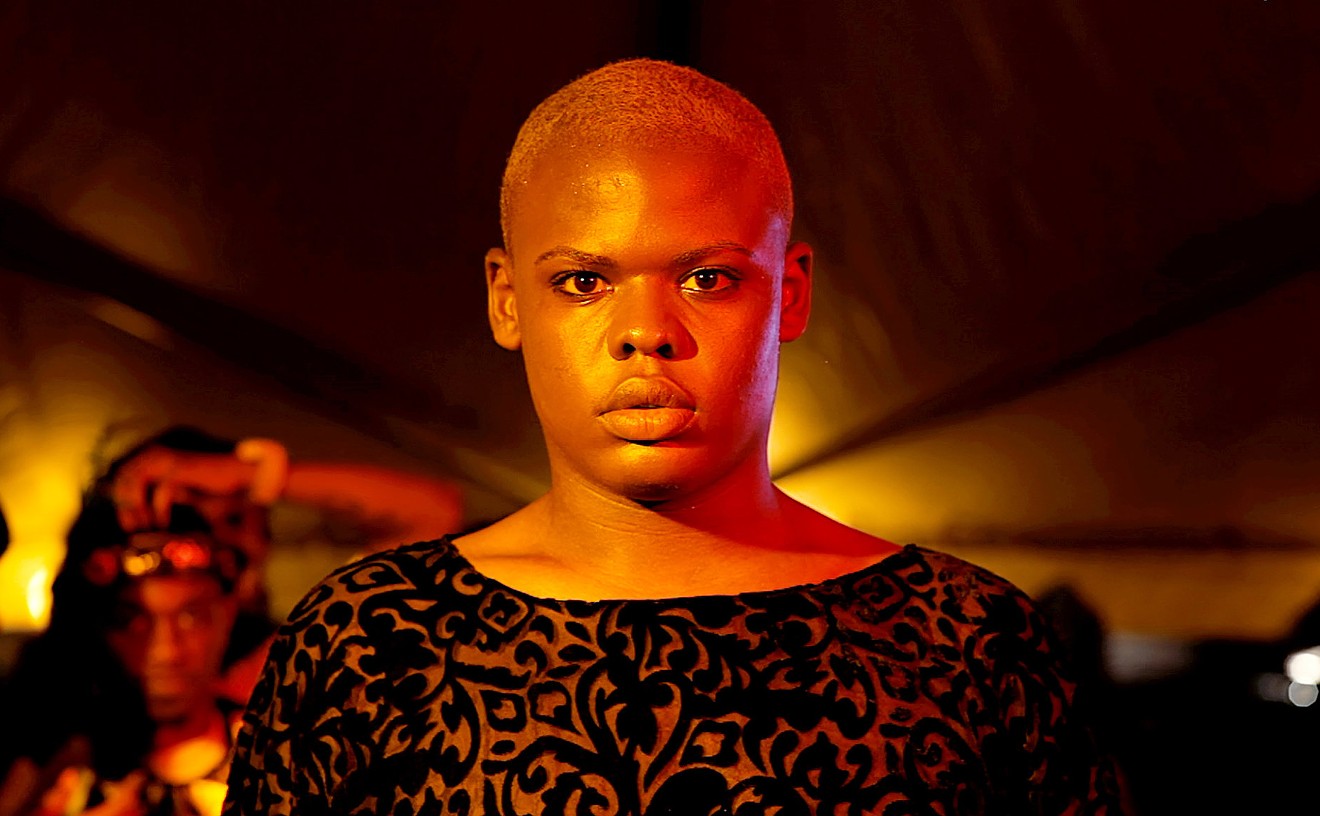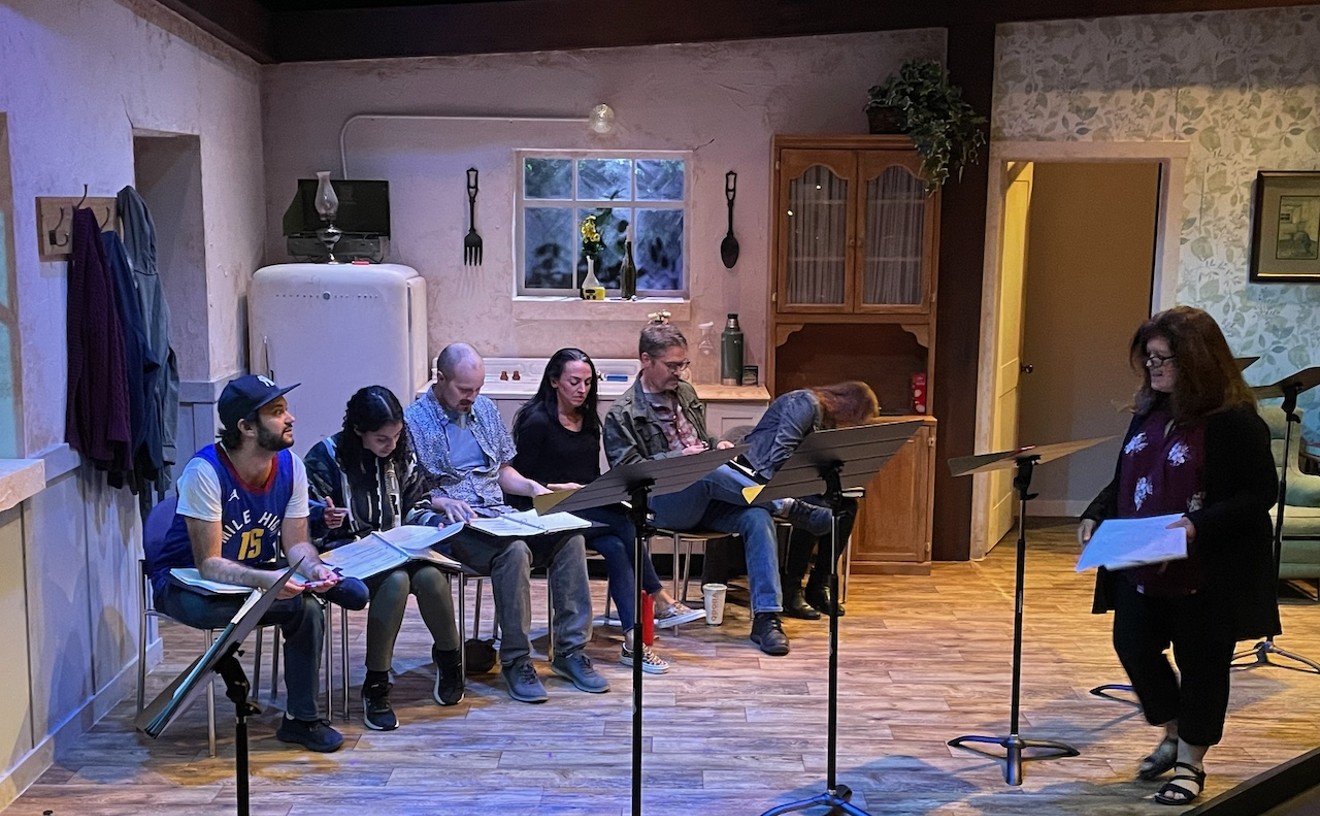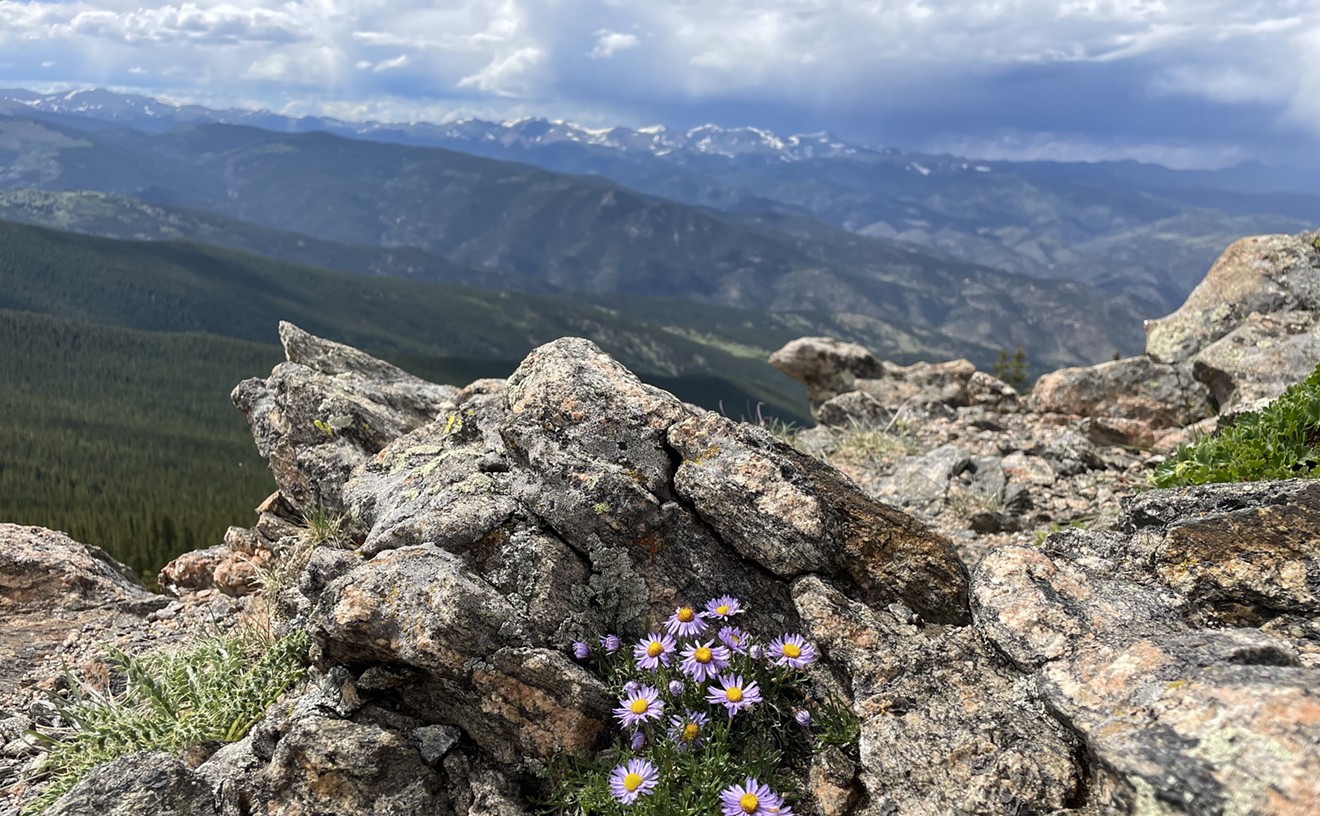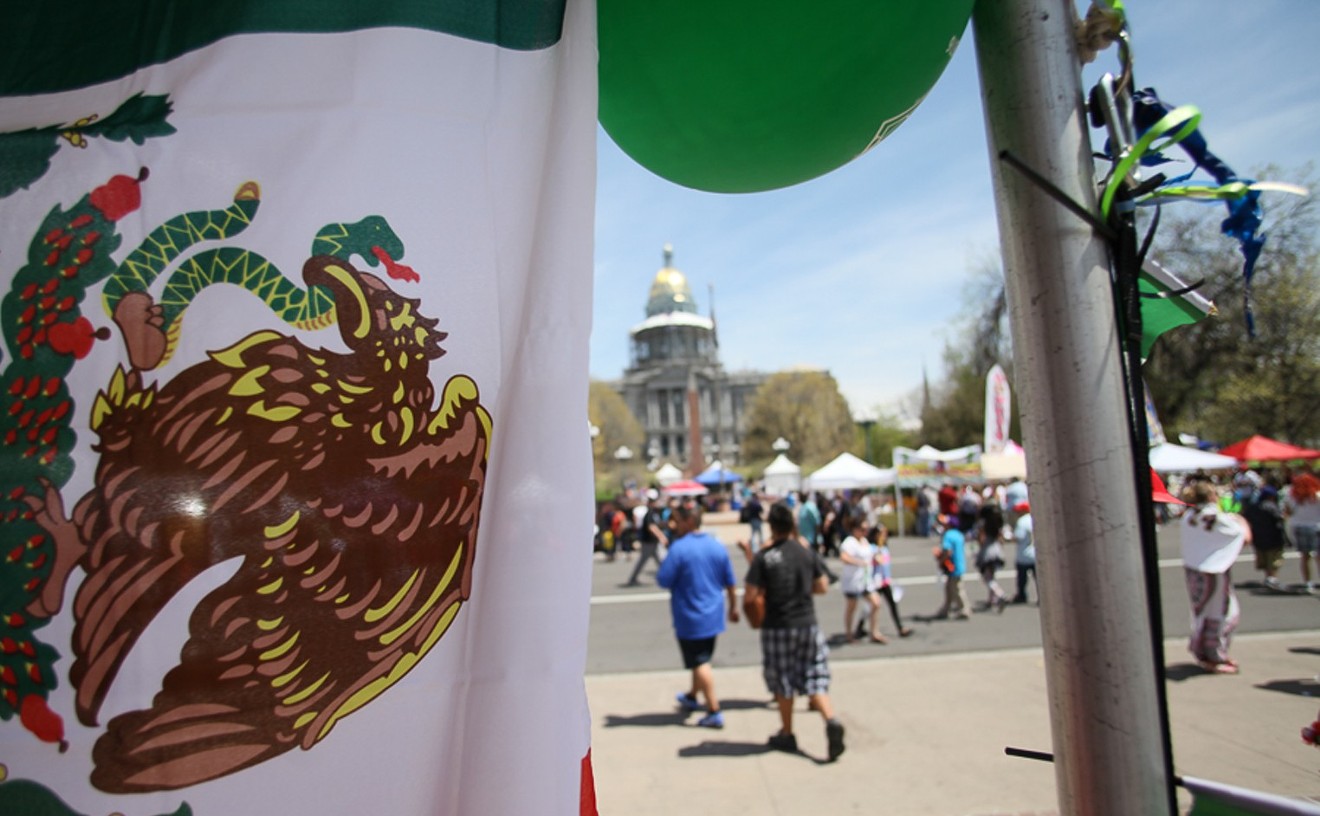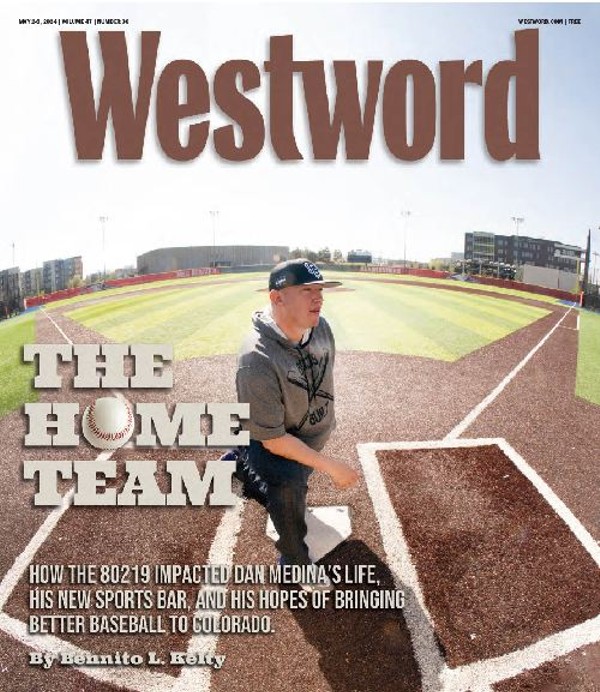Quilters has a strong local history. Based on the journals and remembrances of pioneer women, it was co-written by Molly Newman and Barbara Damashek in the early 1980s at the request of the Denver Center Theatre Company — where it has now returned. The piece is very much a product of its era, and of the feminist movement.
The two decades preceding Quilters was a period of artistic experimentation. Playwrights tossed out linear storytelling, and many stage pieces were composed of sequential monologues, often — in keeping with the artists' anti-hierarchical principles — based on the lives of ordinary people. But at the time, while the myths and popular history of the West focused on the experiences of outlaws, cowboys, gold miners and trappers, little attention was paid the women who somehow managed to raise children and nurture families while facing all the hardships of the frontier.
Newman and Damashek realized the potency of quilting, an almost-universal activity among pioneer women, as a metaphor. Made of scraps and bits — pieces of dresses, blankets, sheets, pants, fragments of a young girl's worn-out skirt — quilts were used to swaddle babies, warm the sick, shelter sleepers through the bitter winter nights and cover the dead. They served as gifts and charitable offerings; they were created to mark such significant transitions as births, weddings and coming of age. Women quilted outside in the welcome solitude of a May afternoon, or met in festive groups to sew, share food and dance. Quilts married gritty practicality with artistic expression as women sewed their deepest thoughts and longings into their panels. Newman and Damashek used the idea of the quilt not only to celebrate these quiet, industrious lives, but as a profoundly female way of structuring their play; each scene is inspired by and reflects on a traditional quilt pattern: Babies' Blocks, Butterfly, Dove in the Window.
The amazing thing is that the piece works in the 21st century, too. Sure, every now and then it's a bit too smiley, dancey and pink-edged (there must have been some bad-tempered women, cruel men and evil-tempered teachers in pioneer times — but you won't learn of them here). Still, Quilters is a far cry from all the contemporary gigglefests purporting to honor womanhood. There are shadows in it, and some hard truths, and the playwrights haven't glossed over any of them. We learn of cholera, choking dust, life- and property-devouring fires; the woman who spent her years alone, having lost out on a chance of marriage with the man she loved because she couldn't have children; the girl who learns she was taken from a traumatized, half-mad teenage mother, who sewed a quilt for her baby before dying and whose story no one was ever able to unravel. The actors speak of the babies born year after year after year until a mother's body simply gave out or she resorted to self-induced abortion. The script doesn't romanticize these women or proclaim them as heroes; it simply shows their stubborn and life-affirming endurance.
Any sentimentality that remains is mitigated by the humor and toughness with which Kathleen M. Brady approaches the central role of Sarah — an older woman working on a legacy quilt who represents a mother figure to six younger actresses, each of them playing several parts. Brady's performance is commanding and emotionally rich; every now and then, she emits a wonderfully dirty laugh. The other performances range from decent but not revelatory to terrific. Susannah Flood, making her first Denver appearance, is a find — droll and sweet, funny and moving. And it was a good impulse on the part of director Penny Metropulos to add a male to the usually all-female cast: Jeff Skowron is a versatile performer, and his voice and presence provide needed texture. The tech is impeccable, from William Bloodgood's spare, eye-pleasing set — a green hill, an ever-changing sky — through Don Darnutzer's evocative lighting and Constanza Romero's authentic-seeming costumes. Six musicians bring precision and joyous energy to Damashek's church- and folk-song-influenced score.
This production really does feel like a living, flowing quilt, with sun and shadow alternating, bits that feel stretched out or commonplace, and patches of pure pleasure.





